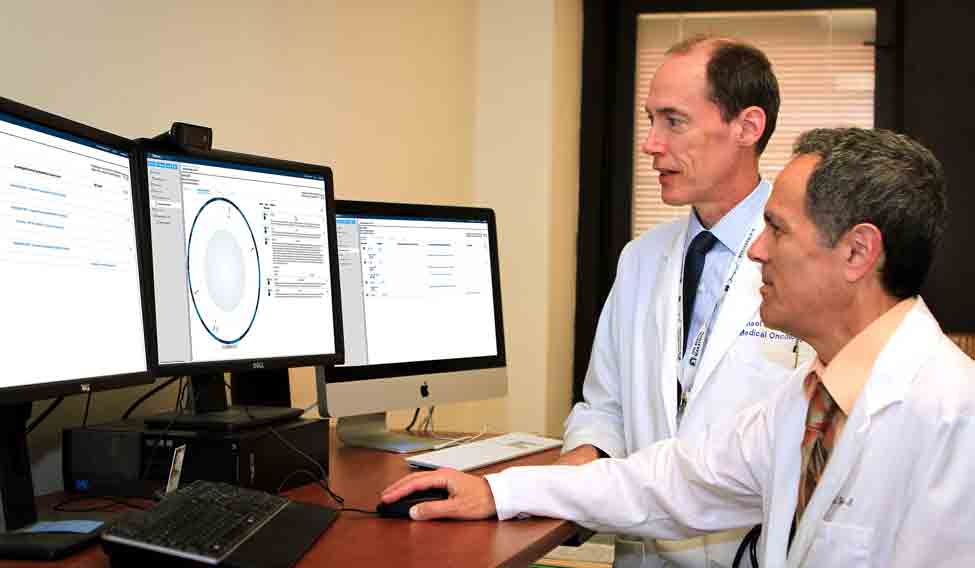Next time your doctor writes a prescription for you, observe him carefully instead of trying to decipher his handwriting. He could be engrossed in thought, especially if your disease is rare or complicated. He has to choose the very best for the patient from what he has learnt from those numerous medical texts and journals. While doing this, his brain acts as a browser and retrieves relevant data.
The human brain has its own limitations when it comes to storage and retrieval of data. A supercomputer that can provide information on medical advancements and the most effective treatment options available could be on every doctor’s wishlist.
IBM’s supercomputer called Watson Oncology is a dream come true for doctors as well as patients. ”The supercomputer which uses artificial intelligence is a powerful tool for diagnosis and treatment of cancer,” says Dr Somashekar S.P., chairman and head of the department, Manipal Comprehensive Cancer Care Centre. Manipal is the second hospital in the world to deploy Watson, the first being Memorial Sloan Kettering Cancer Centre, New York.
Oncology is a rapidly advancing field of medicine, where the cognitive computing platform has a lot of applications. "Watson Oncology has ingested 15 million pages of medical content related to oncology, including around 200 medical text books, 300 journals and thousands of research papers," he adds. Every day, more than hundred research papers on oncology get published, making it impossible for an oncologist to keep abreast of the new developments. Besides that, a thorough understanding of population health trends and genetics are also crucial.
The supercomputer ranks the treatment options available and provides links to supporting evidence for each of them. "It can process the patient’s genomics data and case history and come out with tailor-made recommendations in 60 seconds," says Somashekhar. “One can even find out the success rate of a treatment option, the possible side effects and toxicities of drugs, with the help of Watson Oncology. We formulate our treatment plan based on this feedback," he adds.
Piyali Pal, 38, would vouch for Watson Oncology. Pal who was suffering from recurrent bilateral breast cancer underwent treatment at Manipal hospital. When all the standard treatments failed, doctors fed her data into the supercomputer. The treatment recommended by Watson Oncology cured her of her rare and complicated cancer.
Watson Oncology analyses high volumes of data and processes information more like a human than a computer, says Ashish Cowlagi, Program Director, IBM Watson Health Offering Management, New York. "Watson understands natural language, generates hypotheses based on evidence, and learns as it goes. It continuously learns, gaining in value and knowledge over time, and from interactions with its environment," he adds.
Somashekhar says that the other cancer centres in the country may also start using Watson Oncology soon. They can access it online and take an opinion. Patients are the ones who are going to benefit the most from Watson, says Somashekhar. "You get all the information at the click of a mouse. So patients don’t have to go to another hospital for a second opinion," he says.
IBM researchers spent more than a decade developing Watson. After Watson won Jeopardy!, an American television quiz show, their focus was more on improving its performance and how it is accessed.
Cowlagi feels that oncology is a worthy target for the unique capabilities of Watson, as it has a lot of 'dark data'—unstructured information buried in reports and images that is hard for traditional software to access.’’ The software may be used for the diagnosis and treatment of diseases other than cancer in future.
Cognitive computing has numerous applications across multiple fields. "Delivered via the cloud, Watson now powers consumer and enterprise services in the health care, financial services, retail and education markets," says Cowlagi.
Watson Health, announced last year is one of the dream projects of IBM. It uses the Watson software to address a diverse set of health and wellness challenges including rare diseases. "We are working with a number of key partners and clients such as MD Anderson Cancer Center, Mayo Clinic, Cleveland Clinic, Apple, Johnson & Johnson and Medtronic to name a few on Watson Health partnerships and services," says Cowlagi. "Hundreds of clients and partners across six continents, 25 countries and more than 17 industries have now active projects underway with Watson,” he adds.
IBM has big plans for India. Watson and his siblings could be a boon for the country, where access to healthcare is a major problem.







